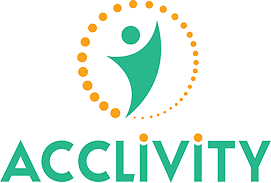As the winter months settle in, academia faces unique challenges that can significantly impact faculty members’ mental health. From shorter days to heightened academic pressures, these factors can take a toll on anyone, regardless of their experience in the field. Here’s a closer look at the specific challenges faced by faculty during this time, along with practical strategies to navigate them effectively.
Understanding the Challenges
Winter in academia often coincides with increased workload and expectations. Faculty members may find themselves juggling grading, research deadlines, and administrative duties amidst fewer daylight hours. This combination can lead to heightened stress levels and feelings of overwhelm, affecting productivity and overall well-being.
Impact on Mental Health
The reduced sunlight during winter months can contribute to Seasonal Affective Disorder (SAD), a type of depression that affects people cyclically at certain times of the year. Coupled with academic stressors, this can exacerbate existing mental health challenges or trigger new ones among faculty members. It’s crucial for academia to recognize and address these issues proactively.
Support Systems in Academia
While the challenges are significant, academia also offers robust support systems. Academic career coaching, for example, plays a pivotal role in helping faculty navigate these challenges effectively. Career coaches provide personalized guidance tailored to the unique needs of academics, offering strategies to manage stress, enhance productivity, and maintain a healthy work-life balance.
Benefits of Academic Career Coaching
- Personalized Guidance: Academic career coaches work closely with faculty members to understand their specific challenges and goals, offering tailored strategies for career advancement and personal well-being.
- Stress Management: Through targeted coaching sessions, faculty can learn effective stress management techniques, helping them cope with the pressures of academia during demanding seasons like winter.
- Professional Development: Coaches assist in identifying opportunities for growth and advancement within academia, whether through research achievements, teaching innovations, or leadership roles.
- Work-Life Balance: By fostering a holistic approach to career development, coaching encourages faculty to prioritize self-care and maintain a healthy work-life balance, which is crucial for sustained productivity and mental well-being.
To support faculty during the challenging winter months, consider engaging with an academic career coach who specializes in academia. Whether you’re looking to enhance your teaching strategies, advance your research agenda, or simply navigate the stresses of academic life more effectively, coaching can provide the guidance and support you need to thrive.
Navigating the winter months in academia can be challenging, but with the right support and strategies in place, faculty members can maintain their well-being and professional fulfillment. Remember, investing in your career through coaching not only enhances your productivity but also contributes to a healthier, more balanced academic life.
Explore how academic career coaching can benefit you as an academic professional. Take the next step towards enhancing your career and well-being by scheduling a consultation with Dr. Loren M. Hill today.
By acknowledging and addressing the unique challenges faced during winter in academia, faculty members can proactively manage their mental health and thrive in their careers.

